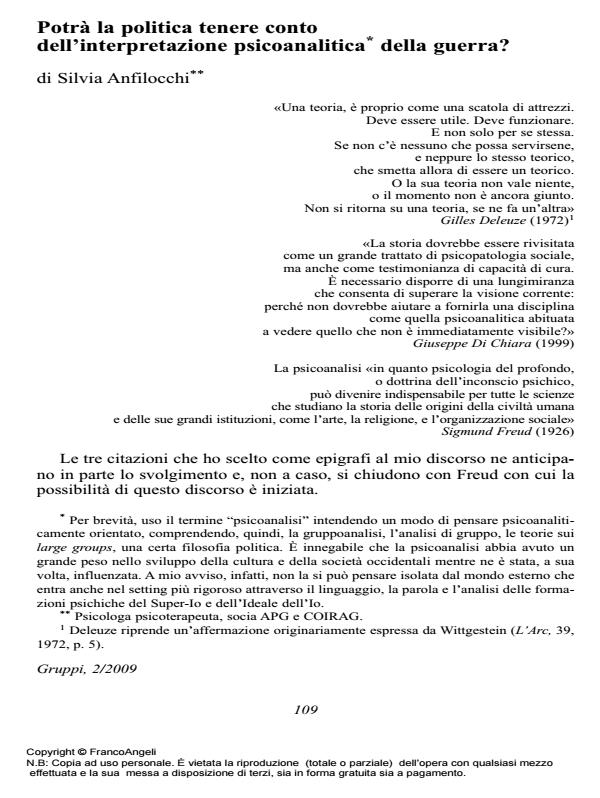Potrà la politica tenere conto dell’interpretazione psicoanalitica della guerra?
Journal title GRUPPI
Author/s Silvia Anfilocchi
Publishing Year 2010 Issue 2009/2
Language Italian Pages 9 P. 109-117 File size 295 KB
DOI 10.3280/GRU2009-002012
DOI is like a bar code for intellectual property: to have more infomation
click here
Below, you can see the article first page
If you want to buy this article in PDF format, you can do it, following the instructions to buy download credits

FrancoAngeli is member of Publishers International Linking Association, Inc (PILA), a not-for-profit association which run the CrossRef service enabling links to and from online scholarly content.
Will politics take the psychoanalytical interpretation of war into account? - Since Freud, psychoanalysis has tried to explain the profound reasons behind the origin of war, the unconscious motivations which give rise to conflicts (primary processes), that are hidden under declared and manifest motivations, whether they be political, economic, or social (secondary processes). Only a complex analysis that is able to take into account both internal, unconscious and narcissistic factors - as the basis of human destructiveness - and external factors, may lead to an exhaustive understanding of the nature of conflicts, for a political environment that can inspire peaceful coexistence. (Freud, Fornari, Green, Volkan). "Psychoanalysis cannot defeat human destructiveness, but it can "help us understand that unconscious destructiveness is the most dangerous", help us "reduce our anguish by putting an end to the mutual reinforcement between hatred and fear". It cannot make good human beings, but it can make them less "stupid"" (Mariotti, 2007; Argentieri, 2003).
Keywords: War, psychoanalysis, politics, violence, scission, consciousness.
Silvia Anfilocchi, Potrà la politica tenere conto dell’interpretazione psicoanalitica della guerra? in "GRUPPI" 2/2009, pp 109-117, DOI: 10.3280/GRU2009-002012